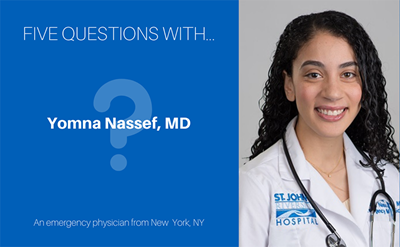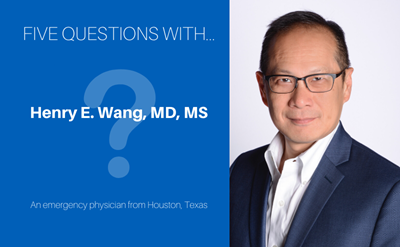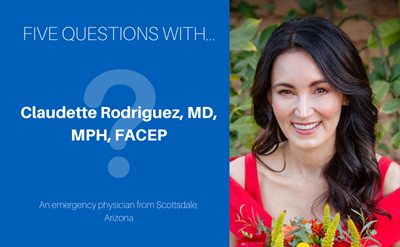 Emergency physicians have a long history with each branch of the United States military. Is there a common thread between emergency physicians in the military and the doctors in emergency departments across the country?
Emergency physicians have a long history with each branch of the United States military. Is there a common thread between emergency physicians in the military and the doctors in emergency departments across the country?
Emergency physicians have a strong sense of purpose and connection to our mission. This deep commitment comes through clearly in the military and in every emergency department in the country.
Emergency medicine gives us a unique chance to protect the health of vulnerable and underserved patients. Emergency physicians, whether civilian or military, proudly use their extensive training to serve the community.
Few people realize that emergency medicine has so many applications outside the traditional hospital walls. What can you share about your experience?
I served in Iraq and was deployed with a Marine shock trauma platoon. We specialized in damage control resuscitation, which focuses on stabilizing severely injured patients. My experience caring for injured Iraqis, despite limited resources and almost no existing medical infrastructure, will always stick with me.
Today, I am a medical simulation educator. I use mannequins and actors to create experiences that prepare experts for what they will see in hospitals or deployed with a medical unit. In my clinical role, I provide care for veterans who carry the impact of their service with them every day. I am honored to serve them.
A military emergency physician could be aiding with mission planning, damage control resuscitations, or evacuations from remote locations. Others are back home in a civilian setting or taking care of patients at military hospitals and the U.S. Department of Veterans Affairs. We are frequently deployed domestically for disaster relief with the National Guard.
There are emergency physicians leading efforts right now to protect people from wildfires, storms, floods, and whatever else Mother Nature throws at us, including COVID-19.
How has the pandemic impacted your work?
As a military emergency physician, we specialize in providing care under extreme circumstances, often with limited or unpredictable resources. We use what we have, and we adapt.
I doubt anyone would choose to battle the greatest public health crisis of our time under these circumstances, but many of my colleagues still have limited personal protective equipment and their lives are on the line.
Burnout has always been a huge challenge and I worry that, just like an extended deployment, my brothers and sisters on the frontlines have been fighting this virus for months with no end in sight.
The virus brings a new set of challenges to those of us abroad in remote locations and the medical component is more central to each mission than ever before. We build risk assessment into everything we do and today we must be extraordinarily vigilant about the safety of our patients, our own safety, and the well-being of our care team.
You are the president of the American College of Emergency Physicians (ACEP) Government Services Chapter. What does the chapter focus on?
The Government Services Chapter represents the military emergency physicians serving as Active Duty, in the National Guard and Reserve, and physicians in federal service in the Department of Veterans Affairs, Indian Health Service, Department of Health and Human Services, and the U.S. Public Health Service Commissioned Corps.
The Chapter represents more than 1,200 emergency physicians and is one of the largest of ACEP’s 53 chapters. Our core goal is to promote quality emergency care and enhance the development of emergency physicians who serve our nation from training through retirement.
We do this by providing resources, networking and advocacy for military residents and physicians. We also facilitate continuing education and unique training opportunities.
What would you like to say to the veterans that you treat?
You took care of us, now let us take care of you.
Many veterans tend to minimize medical issues. These folks are very tough, but veteran suicide rates are among the highest in society and many of them have access to a firearm. I implore everyone, especially veterans: please take care of yourself, and seek care if you need it.
Andrea Austin, MD, FACEP, is an emergency physician based in San Diego, CA and serves as president of the American College of Emergency Physicians’ Government Services Chapter.
 American College of Emergency Physicians
American College of Emergency Physicians







